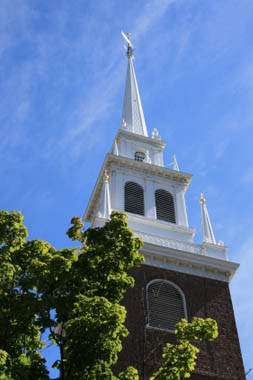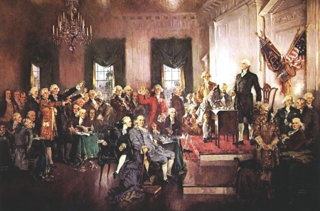|
|
 [ Home | About Us | Grant Making | Grant Programs | Contact Us ] [ Home | About Us | Grant Making | Grant Programs | Contact Us ]
Grant Making
The Apgar Foundation does not accept or consider unsolicited grant applications. Candidates who, after reviewing the "Foundation Policies" below, believe they are suitable for funding should send a brief introductory e-mail to: info@apgarfoundation.org.
Apgar Foundation Policies
- Apgar Foundation limits its grants to programs that fit one of its missions.
- Apgar Foundation limits its college grants to accredited American colleges and universities. All other recipients must be exempt, non-profit, public U.S. charities recognized by the IRS under Section 501(c)(3) of the Internal Revenue Code. The only exception is our Sabbatical Research Grant program (see below).
- Although it reserves the right to make exceptions allowed by the law, as a matter of policy, Apgar Foundation does not make any of the following grants:
- Grants to endowments or capital campaigns;
- Grants for political purposes, or to try to influence legislation;
- Grants for buildings, grounds, or other facilities;
- Grants for non-merit-based scholarships or fellowships.
- Apgar Foundation does not pay indirect costs. Appropriate direct costs may be included in program budgets.
- Apgar Foundation does not accept or consider unsolicited requests for funds.
Application Procedures
 Initial contact with the Foundation must be in the form of a brief e-mail outlining the nature of the program for which funding is being sought, as well as a full CV from the faculty member(s) who will be overseeing the program (in the case of a university or college grant) or links to annual reports and other pertinent information about the organization, including biographical information on key personnel (if from a non-profit organization). Initial contact with the Foundation must be in the form of a brief e-mail outlining the nature of the program for which funding is being sought, as well as a full CV from the faculty member(s) who will be overseeing the program (in the case of a university or college grant) or links to annual reports and other pertinent information about the organization, including biographical information on key personnel (if from a non-profit organization).
- Follow-up will generally involve a phone call from a foundation representative. Suitable applicants will be asked to complete an application form and submit additional materials for review by the Trustees of the Apgar Foundation.
- An invitation to apply is emailed to potential applicants in November. Board review of all applications typically occurs in February or March.
- Each application is reviewed individually, as well as in comparison with others. Criteria of merit for comparing programs include:
- A start-up program or one dramatically expanding in size, scope, or direction;
- Institutional endorsement, including administrative letters of recommendation and official institutional recognition of the program;
- Demonstration of other sources of potential or actual support;
- A plan to develop full, self-sustaining support (without further Foundation grants) within a reasonable time frame.
Reporting Requirements
Grantees should provide periodic reporting on their progress. In addition, formal reports are due annually, and at the end of the grant period in the case of multiyear grants.
Foundation Interests at Colleges and Universities

- Undergraduate programs within the fields of political science, religion, philosophy, history, economics, literature, business, and the arts that explore:
- Personal freedom;
- Self-reliance and the reward of merit;
- Market-based economics and the contributions of business;
- Judeo-Christian and Western values.
- Campus-based programs within these areas that involve lectures, conferences, or seminars open to the general public and/or offer continuing education for middle and high school teachers.
Foundation Support for Sabbatical Research Grants
Apgar Foundation is pleased to announce a new program to support original research and writing which furthers its core mission. Preference shall be given to proposals in the areas of political science, religion, history, economics, and Western civilization.
Application Parameters
- The program is designed to provide salary support during a sabbatical leave or for summer research. Successful applicants are expected to devote themselves full-time to the proposed project during the period of the grant. Funds may be used for salary support and/or for research-specific travel and related expenses directly relevant to the project. Amounts granted shall be based on the equivalent of salary and benefits during the academic year—or salary only during the summer—of the applicant.
- It is primarily expected that candidates will be scholars with advanced degrees in their area of specialization, applying to use the grant to make possible full-time research and writing during a sabbatical leave, or to enable full-time research and writing during a summer break. While most successful candidates will be employed in academic institutions of higher education, full-time journalists, public intellectuals, or policy experts may also qualify so long as they have the requisite qualifications and/or experience and are released from their other obligations to be able to work full-time on their project for a minimum of three months.
Application Procedures
- Interested applicants should send a brief email to: info@apgarfoundation.org. Include your name, institutional affiliation, the anticipated dates of your sabbatical or research leave, and a brief synopsis of your proposed project. The synopsis should be no more than 250 words and should indicate the topic, the nature of the work (book, article, etc.), and its significance.
- Recipients are selected based upon their professional qualifications, their eligibility for a sabbatical or research leave of absence, prior publication history, the affinity of their proposal to the substantive mission of the Foundation, the importance of their subject to that mission, and the likelihood that their work product will make a meaningful contribution to their field or in furthering public understanding.
- After an initial review, the Foundation may choose to ask you to submit a full application.
- The Apgar Foundation does not discriminate on the basis of race, age, color, sex, national origin, physical or mental disability, or religion.
We are very excited about the potential of this program to advance scholarship and the principles of the Foundation. We look forward to hearing from you!
|
|


 [ Home | About Us | Grant Making | Grant Programs | Contact Us ]
[ Home | About Us | Grant Making | Grant Programs | Contact Us ]
 Initial contact with the Foundation must be in the form of a brief e-mail outlining the nature of the program for which funding is being sought, as well as a full CV from the faculty member(s) who will be overseeing the program (in the case of a university or college grant) or links to annual reports and other pertinent information about the organization, including biographical information on key personnel (if from a non-profit organization).
Initial contact with the Foundation must be in the form of a brief e-mail outlining the nature of the program for which funding is being sought, as well as a full CV from the faculty member(s) who will be overseeing the program (in the case of a university or college grant) or links to annual reports and other pertinent information about the organization, including biographical information on key personnel (if from a non-profit organization).